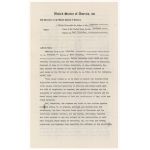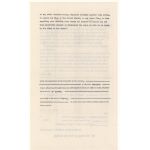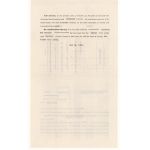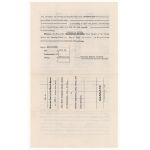Mandate in West Virginia v. Barnette
6/14/1943
Add to Favorites:
Add all page(s) of this document to activity:

Add only page 1 to activity:
Add only page 2 to activity:
Add only page 3 to activity:
Add only page 4 to activity:
The customs and laws governing the public recitation of the Pledge of Allegiance were not without opposition. The most notable objection came from the Jehovah's Witnesses, who opposed the salute on the grounds that it conflicted with their religious beliefs, especially those concerning idolatry. On Flag Day in 1943, the Supreme Court ruled in West Virginia v. Barnette that the First Amendment prohibits the state from compelling the flag salute. In the decision the Court stated in part: "If there is any fixed star in our constitutional constellation, it is that no official, high or petty, can prescribe what shall be orthodox in politics, nationalism, religion, or other matters of opinion or force citizens to confess by word or act their faith therein, If there are any circumstances which permit an exception, they do not now occur to us."
This primary source comes from the Records of the Supreme Court of the United States.
National Archives Identifier: 5641611
Full Citation: Mandate in West Virginia v. Barnette; 6/14/1943; Records of the Supreme Court of the United States, Record Group 267. [Online Version, https://www.docsteach.org/documents/document/mandate-in-west-virginia-v-barnette, April 25, 2024]Activities that use this document
- The First Amendment
Created by the National Archives Education Team
Rights: Public Domain, Free of Known Copyright Restrictions. Learn more on our privacy and legal page.







